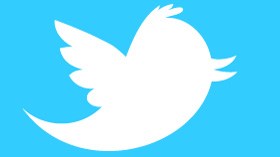
Sometimes I worry that I know too much about the people on my various friends lists. Especially some of the actual friends.
Late night, beer-powered confessions of love and lust. Post stag-night photos of things only a proctologist would ever request to see. Entire music playlists devoted to the musical Hairspray.
The list goes on and on, and seems to get longer every day - most recently with both Spotify and Netflix UK assuming that we want to broadcast everything we do, and not going out of their way to highlight their opt-out options.
The reason is obvious enough. On a service like Facebook, every shared bit of information is free advertising. You see your friend listening to something amazing. You click the button to listen to it too. The site chalks up another customer, or at least another active user for the day.
I don't blame them for wanting that. I just wish they'd stop pretending that it's done for our benefit and make it easier to opt out. Spotify, for example, lets you press a button to go into 'Private Listening' mode, but offers no way of making that the default. Netflix makes it easier, but hides its non-Facebook sign-up method if it sees you have an account.
To share or not to share?
The idea of broadcasting everything I watch, listen to, read or ponder "Ooh, what's that?" about fills me with dread. It's not simply that it's nobody else's business, but that nothing distinguishes between things you actively recommend and things that just caught your attention.
As far as Facebook is concerned, there's no difference between being a devoted fan of Californication and saying "Wait, what the heck is Californication?"
Get daily insight, inspiration and deals in your inbox
Sign up for breaking news, reviews, opinion, top tech deals, and more.
But what if there was? There's no reason these updates can't become far, far more specific over the next couple of years, and really drill down into your viewing habits.
We've already had this year's Aching Solitude Awareness Day (nee Valentine's Day), but imagine spending an evening in front of the TV next year, drowning your sorrows while your friends sit in restaurants with their loved ones, occasionally checking their phones to smirk at a steady stream of "Recently Watched: Starship Troopers (shower scene), Lifeforce (skipped to naughty bit in the lab), Mighty Morphin' Power Rangers (entire show), Dexter Series 2 (pardon my timecode)" and so on. Water coolers have yet to be invented that can handle this level of awkwardness.
What's that, you say? That's only something for weirdos to worry about? Ask the poor soul who watches something like Hard Candy after the kids have spent a few hours with the Rugrats.
All this is a strange reversal of the usual privacy fears. Historically, everyone's been paranoid about faceless corporations that genuinely do not give the faintest damn if you want to spend your day off mainlining episodes of Avatar: The Last Airbender.
Deception is the key
Now, comfort and discomfort alike are based around the far more pragmatic question of what you want your friends and family to see you getting up to, and the only reason to fear the mighty database is that it still gets to display a treacherous "Recently watched" type list when you log in or, even worse, "People like you also enjoyed..."
Only one thing promises to make any of this bearable: the ability to lie and cheat like a squirming bastard. Browsers have Privacy Mode, old games had Boss Keys. Services like Spotify and Netflix need to follow suit.
I'm thinking that any service will have to let us set at least two different passwords - one to give us what we actually (for want of a less awful word) consume, and another that focuses on what we'd actually like other people to associate with us. There, your recent list would consist of films matching your chosen tags like 'cultured' and 'witty', lightly sprinkled with a few of your actual favourites for believability.
Likewise, Amazon's Kindle should have an LCD cover capable of displaying your current book's art, and hot-swapping it for something more likely to impress whoever caught your eye on the other side of the cafe, while your iPod headphones leak a cooler track than the one you're actually listening to.
If this seems morally bankrupt, it's only because everyone isn't already doing it. We'll just have to agree to maintain the masquerade by never asking each other questions about anything ever again. Seems like a small price to pay for us to feel cool and 'with it', if you ask me.
Until that glorious day? If you're worried about accidentally embarrassing yourself, you have two workarounds. First, never use anything that risks posting your secret data.
Too much? Beat the system by clicking on everything in sight until your friends and friends alike click the magic 'Ignore' button on your profile to spare themselves a future deluge.
You could turn your back on guilty pleasures instead of course, forever enjoying your entertainment with a monastic fervour against anything silly, raunchy or politically incorrect... but who wants to do that? None of your friends, that's who. No matter how much they claim to be watching Citizen Kane.